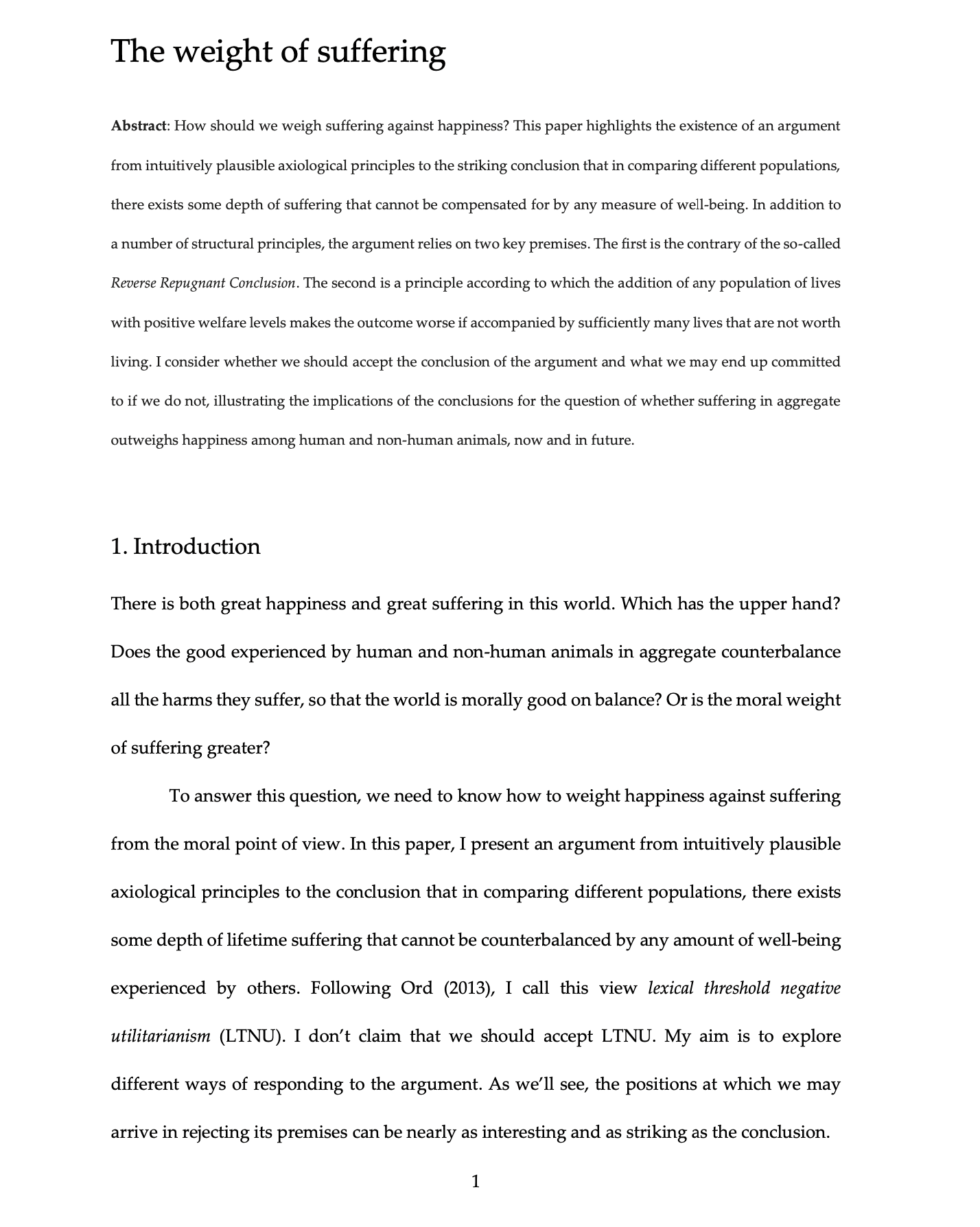The weight of suffering
Andreas Mogensen (Global Priorities Institute, University of Oxford)
GPI Working Paper No. 4-2022, forthcoming in The Journal of Philosophy
How should we weigh suffering against happiness? This paper highlights the existence of an argument from intuitively plausible axiological principles to the striking conclusion that in comparing different populations, there exists some depth of suffering that cannot be compensated for by any measure of well-being. In addition to a number of structural principles, the argument relies on two key premises. The first is the contrary of the so-called Reverse Repugnant Conclusion. The second is a principle according to which the addition of any population of lives with positive welfare levels makes the outcome worse if accompanied by sufficiently many lives that are not worth living. I consider whether we should accept the conclusion of the argument and what we may end up committed to if we do not, illustrating the implications of the conclusions for the question of whether suffering in aggregate outweighs happiness among human and non-human animals, now and in future.
Other working papers
Moral demands and the far future – Andreas Mogensen (Global Priorities Institute, Oxford University)
I argue that moral philosophers have either misunderstood the problem of moral demandingness or at least failed to recognize important dimensions of the problem that undermine many standard assumptions. It has been assumed that utilitarianism concretely directs us to maximize welfare within a generation by transferring resources to people currently living in extreme poverty. In fact, utilitarianism seems to imply that any obligation to help people who are currently badly off is trumped by obligations to undertake actions targeted at improving the value…
The Hinge of History Hypothesis: Reply to MacAskill – Andreas Mogensen (Global Priorities Institute, University of Oxford)
Some believe that the current era is uniquely important with respect to how well the rest of human history goes. Following Parfit, call this the Hinge of History Hypothesis. Recently, MacAskill has argued that our era is actually very unlikely to be especially influential in the way asserted by the Hinge of History Hypothesis. I respond to MacAskill, pointing to important unresolved ambiguities in his proposed definition of what it means for a time to be influential and criticizing the two arguments…
Existential risk and growth – Leopold Aschenbrenner (Columbia University)
Human activity can create or mitigate risks of catastrophes, such as nuclear war, climate change, pandemics, or artificial intelligence run amok. These could even imperil the survival of human civilization. What is the relationship between economic growth and such existential risks? In a model of directed technical change, with moderate parameters, existential risk follows a Kuznets-style inverted U-shape. …

